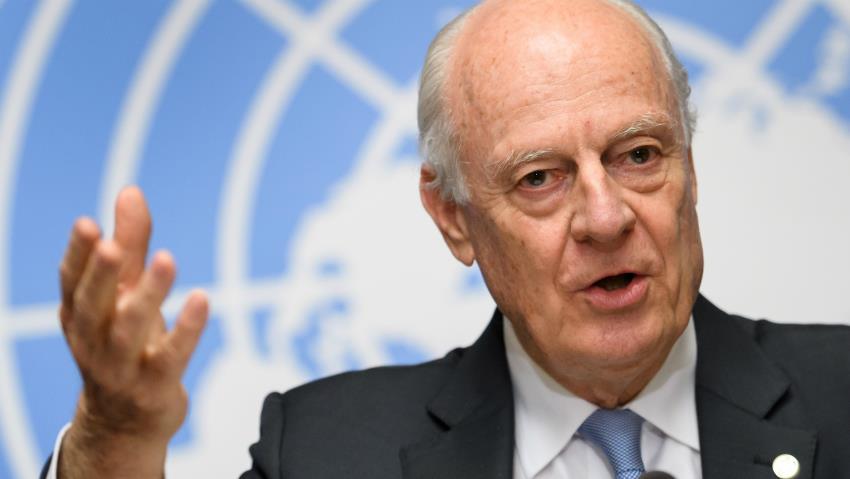The former UN special envoy to Syria, Staffan de Mistura, said he quit his position last year to avoid shaking Syrian regime pPresident Bashar al-Assad’s hand.
In 2014, de Mistura became the third UN diplomat tasked with ending the Syria war which erupted in 2011, before leaving his post last year.
Speaking in the UK on Monday at the Aga Khan Centre in London, de Mistura lamblasted a deal reached between the US and Russia in 2016 before the presidential election, which fell apart after the regime attacked a UN aid convoy killing more than 20 people.
He said the Russians had wanted the deal because they thought Hillary Clinton would become US president, but it fell apart due to “spoiling events”.
“Why did I leave last year? Well, officially, for personal reasons,” he said, according to The Guardian.
“Unofficially, because I felt the war territorially was leading to an end and having really fought against what happened in Aleppo, in Idlib, in Daraya, I could not be the one that is shaking Assad’s hand and saying malesh [Arabic for don’t worry],” he added.
De Mistura said he had not followed a script for the “perfect mediator” as he had condemned war crimes by both sides, angering the regime and opposition forces.
“I could not shave myself in the morning saying ‘malesh’. But wars are won and lost and this one territorially has been lost.”
Interventions by the United Nations, such as aid convoys, and his own personal condemnation of the destruction of Aleppo may have saved up to 700,000, he added.
The former Syrian envoy also said that the failure of the European Union to address the Syrian war and the waves of refugees enabled the UK’s Brexit vote in 2016.
Norwegian diplomat Geir Pedersen replaced de Mistura.
Around 500,000 people have lost their lives in the Syrian war – the vast majority civilians killed by regime and Russian bombing or shelling – while more than half of Syria’s population have been made homeless.
The Syrian Observer has not verified the content of this story. Responsibility for the information and views set out in this article lies entirely with the author.


